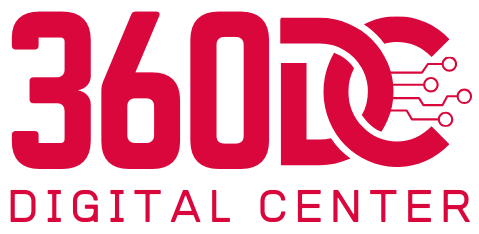Quantum computing is not just science fiction; it will become a reality right before our eyes. But what exactly is quantum computing, and why should you care? Let’s dive into this fascinating world by breaking down what quantum computing is, its history, current developments, and future prospects.

Fundamentals of Quantum Computing
What is a Qubit?
Think of it as a small switch in classical mathematics that can turn off (0) or on (1). Now imagine if that switch could be off and on at the same time. That’s qubits for you, thanks to a strange but fascinating property called superposition. This means quantum computers can crunch a ton of data at a time, vastly outperforming traditional computers in certain types of calculations.
Superposition and Entanglement
Superposition is just the beginning. There is also entanglement, a kind of quantum magic where two qubits are connected. Change one, and the other changes immediately, no matter how far apart they are. This connection allows quantum computers to perform incredibly complex calculations faster than conventional computers, leveraging these phenomena to tackle problems previously deemed unsolvable.
Historical Notes
First Principles and Observations
The idea of quantum computing began in the 1980s with brilliant minds like Richard Feynman and David Deutsch. They pondered, “Hey, what if we use quantum mechanics to build a computer?” This revolutionary idea laid the groundwork for a new era of computational possibilities, challenging the limits of classical computing.
Major Innovations in Quantum Computing
From the groundbreaking algorithms of Peter Shor in the 90s to the creation of the first qubits, each step has brought us closer to making quantum computation a practical reality. Shor’s algorithm, in particular, demonstrated the potential of quantum computers to solve certain mathematical problems exponentially faster than classical computers.
How Quantum Computers Work
Quantum Gates
A quantum gate is the quantum equivalent of a classical logic gate. Qubits are manipulated through a variety of functions, enabling you to perform complex calculations that define quantum computation. These gates are the building blocks of quantum circuits, allowing for operations that harness the unique properties of qubits.
Quantum Circuits
Quantum circuits are networks of quantum gates designed to perform specific calculations. They are fundamental to quantum computing, much like how electronic circuits are necessary for classical computers. These circuits enable the execution of quantum algorithms, paving the way for advanced computational processes.
Types of Quantum Computers
Quantum Annealer
Quantum annealers are designed to solve optimization problems by determining the lowest energy state of the system. They are particularly effective for specific tasks but not as versatile as universal quantum computers. Quantum annealing is an approach to finding the best possible solution to complex optimization problems, providing valuable insights into various applications.
Universal Quantum Computers
Universal quantum computers, on the other hand, can perform any mathematical task given a complete quantum algorithm. They hold the promise of solving problems that are currently beyond the reach of classical computing, making them a versatile and powerful tool for a wide range of scientific and industrial applications.
Quantum Computers vs. Classical Computers
Speed and Efficiency
Quantum computers can solve certain problems much faster than traditional computers. For example, large numbers can be computed or large databases analyzed in a fraction of the time required for traditional computers. This speed and efficiency are particularly beneficial for tasks involving large-scale data processing and complex simulations.
Solvable Problems
While classical computers excel at performing linear tasks, quantum computers are designed to solve complex, multi-dimensional problems. This includes designing molecular systems for drug discovery, optimizing financial models for banks, and even advancing artificial intelligence through improved machine learning algorithms.
Applications of Quantum Computing
Cryptography
Quantum computing could revolutionize cryptography by breaking traditional methods of encryption and creating new, nearly unbreakable codes. The ability to factorize large numbers efficiently makes quantum computers a significant threat to current cryptographic techniques, necessitating the development of quantum-resistant encryption methods.
Drug Discovery
Pharmaceutical companies are using quantum computing to model molecular interactions, which enables the rapid discovery of new drugs and treatments. Quantum computing offers computational capabilities far beyond traditional methods, allowing researchers to simulate and study complex molecules and chemical interactions with greater accuracy and speed. This can significantly accelerate the drug development process and improve the effectiveness of treatments.
Economic Modeling
Quantum computing can provide better investment strategies, manage risk, and model complex financial systems better than classical computing. By analyzing vast amounts of financial data and performing complex simulations, quantum computers can offer insights that enhance decision-making and strategic planning in the financial industry.
Artificial Intelligence
Quantum algorithms can improve machine learning and artificial intelligence, leading to intelligent and adaptive systems. The enhanced processing power of quantum computers allows for the development of more sophisticated AI models, capable of learning and evolving in ways that are currently unattainable with classical computing.
Challenges in Quantum Computing
Technical Challenges
Creating and maintaining complex qubits is a fundamental engineering challenge. Quantum computers require extremely low temperatures and precise controls to function properly. These technical challenges must be overcome to achieve stable and reliable quantum computation, making the development of robust quantum systems a priority for researchers.
Ethical and Security Issues
Quantum computing also raises ethical and security concerns, especially with respect to data privacy and the potential for abuse of its enormous computing power. Ensuring the responsible development and use of quantum technology is crucial to prevent misuse and protect sensitive information.
Current State of Quantum Computing
Key Players in the Industry
Tech giants like IBM, Google, and Microsoft are leading the way in quantum computing research, pushing the boundaries of what’s possible alongside startups and academic institutions. These organizations are at the forefront of developing quantum technologies, contributing to significant advancements and driving the field forward.
Recent Developments and Successes
There have been significant advances in recent years, including Google demonstrating quantum supremacy and improvements in error correction and qubit coherence times. These developments mark important milestones in the journey towards practical and scalable quantum computing solutions.
Future Prospects for Quantum Computing
Predictions and Expectations
Experts predict that within the next decade, quantum computing will begin to solve real-world problems that we currently can’t, shifting industries from healthcare to logistics. The transformative potential of quantum computing promises to revolutionize various sectors, driving innovation and creating new opportunities.
Potential Impact on Businesses
The potential impact of quantum computing is enormous, promising breakthroughs in areas such as materials science, weather modeling, and cybersecurity. Businesses that leverage quantum technologies can gain a competitive edge, enhancing their capabilities and achieving unprecedented levels of efficiency and accuracy.
Quantum Computing in Everyday Life
While quantum computing is currently the work of large organizations, future applications could include personalized medicine, advanced AI assistants, and more secure communications. As quantum technologies become more accessible, their integration into everyday devices and services will bring about significant improvements in various aspects of daily life.
A Long-Term Vision
The long-term vision for quantum computing includes seamless integration into everyday devices, similar to the ubiquity of classical computing today. This vision encompasses a future where quantum technologies are embedded in our daily lives, enhancing our capabilities and transforming how we interact with technology.
Learning and Participating in Quantum Computing
Educational Resources
There are many resources available to those interested in learning about quantum computing, from online courses and tutorials to academic programs. These educational opportunities provide a foundation for understanding quantum principles and developing skills to participate in this exciting field.
Careers in Quantum Computing
As the field grows, so do job opportunities. Quantum computing offers exciting possibilities for researchers, engineers, and developers. The demand for skilled professionals in this area is increasing, making it a promising career path for those passionate about cutting-edge technology.
Common Misconceptions about Quantum Computing
A Common Misconception
Often, misconceptions surround quantum computing, such as the idea that it will instantly solve all problems or completely replace classical computing. These misconceptions can lead to unrealistic expectations and misunderstandings about the capabilities and limitations of quantum technology.
Clarification of Facts
While quantum computing is powerful, it is not a panacea. It excels in specific areas and is likely to complement rather than replace classical computing. Understanding the realistic applications and potential of quantum technology is essential for appreciating its impact and future development.
Quantum Computers and Society
Social Implications
The rise of quantum computing will have enormous social implications, from redesigning industries to ethical considerations influencing the job market. The integration of quantum technologies will bring about significant changes in various sectors, requiring adaptation and new approaches to societal challenges.
Policies and Regulations
Governments and organizations should develop policies and frameworks to ensure the responsible development and use of quantum computing technology. Establishing regulations and guidelines will help mitigate risks and promote ethical practices in the advancement of quantum technologies.
Conclusion
Quantum computing is about to change the way we solve complex problems and understand the world around us. From cryptography to drug discovery, the potential applications are vast and varied. While challenges remain, the progress made so far is a testament to the ingenuity and determination of researchers and scientists around the world. As we move forward, staying informed and engaged in this exciting field will be critical to harnessing its full potential.
FAQs
What is a quantum computer in simple terms?
Quantum computers use the principles of quantum mechanics to process information in ways that classical computers cannot, efficiently solving complex problems.
How long before quantum computers become mainstream?
Quantum computing is still in the early stages of development. It may take a decade or more to become available in the mainstream.
Can a quantum computer break all encryption?
Quantum computers can override many current encryption methods, but new quantum-resistant encryption methods are also being developed.
What is the main challenge of quantum computing today?
One of the main challenges is maintaining the stability and integrity of qubits, as quantum systems are extremely sensitive to environmental perturbations.
How can I learn more about quantum computing?
You can search for courses online, read books on the subject, or follow the latest research from universities and technology companies on quantum computing.

Leave a Reply